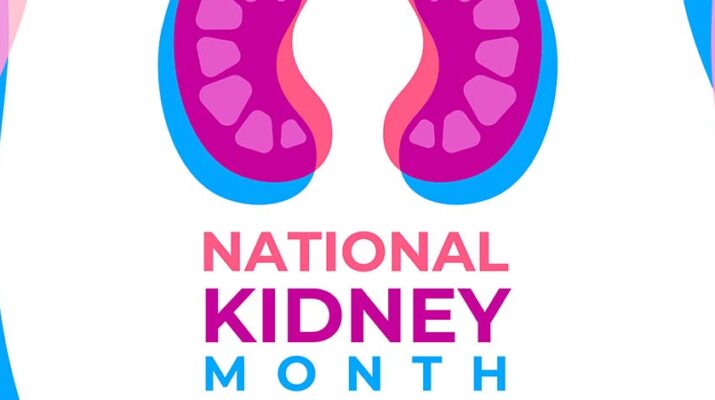To prevent kidney disease, control blood pressure, blood sugar levels, maintain a healthy body weight and avoid smoking
By Philip T. Ondocin, M.D
March is National Kidney Month, and it is a great time to remind the community of the importance of our kidneys. Nephrology is the branch of medicine that deals with the functions and diseases of the kidneys.
The kidneys serve many important functions, including filtering blood and wastes, regulating blood pressure, producing vitamin D, and controlling production of red blood cells.

Nationally, over 37 million people suffer from kidney disease, however most are unaware. This is a serious concern, as by the time symptoms appear, kidney disease may have progressed to a more serious stage.
The potential symptoms of kidney disease include fluid retention in the legs and face, difficulty breathing, decreased appetite, difficulty sleeping, difficulty concentrating and skin itchiness.
Diabetes and high blood pressure are the major causes of kidney disease. Other risk factors include heart disease, obesity, and a family history.
The only way to find out if a person has kidney disease is through blood and urine tests to measure kidney functioning and check for protein in the urine. Lab test results are extremely important to measure kidney function, and the convenient, on-site lab at Nephrology Associates of Syracuse provides most results at the time of the office visit.
Our physicians and providers work together to develop an individualized care plan to slow the progression of kidney disease. A personalized path for preventing and treating kidney disease includes one-on-one in-person care. Care after a hospitalization and monthly chronic care services are available to monitor kidney functioning. Patient education visits that focus on the patient’s condition, options for care, diet, exercise, and how best to manage kidney health are available.
To prevent kidney disease and lower risk for kidney failure, control blood pressure and blood sugar levels, maintain a healthy body weight, avoid smoking, and check with your doctor before taking certain medications.
I recommend that individuals with risk factors or who are experiencing symptoms should be screened by their primary care physician. If warranted, your provider will make a referral for a kidney consultation at our office.

